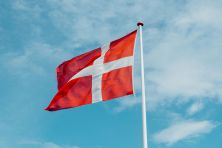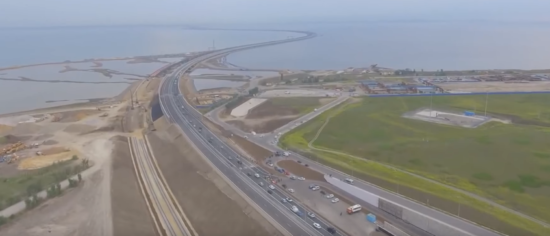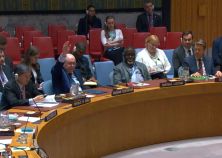The European Union has placed additional sanctions on companies which took part in constructing the Kerch bridge between Crimea and Russia. It was a long road that led to these sanctions.
In early 2014, Russia destroyed the post World War II European order. The invasion of Crimea caught the West off guard – as Moscow launched a direct military invasion using smoke and mirror tactics – soldiers without insignia, the seizure of key infrastructure and a pseudo-referendum. Yet, Russian President Vladimir Putin faced a huge problem – the Crimean peninsula’s relative geolocational isolation from mainland Russia.
Two years, more than $3.7 billion later and despite much opposition from Ukraine, the E.U., and the United States, the Kerch road bridge opened. Putin’s PR campaign shifted into fifth gear as the Kremlin leader led a convoy of orange colored KAMAZ trucks.
Nowadays, the Kerch Bridge carries more symbolism than vehicle traffic. Yet, the project isn’t just an embodiment of the former K.G.B agent’s imperialist ambitions or even a route to improving the general living standards of people in Crimea. Instead, it highlights Putin’s not so clandestine cronyism and the profiteering of his inner circle.
Russian billionaire business magnate Arkady Rotenberg is the most recognisable figure from the six companies sanctioned by Brussels on July 31. He’s Putin’s former judo sparring partner and controls the construction firms Stroygazmontazh, SGM and Mostotrest. All three were hit with asset freezes. Rotenberg himself was previously sanctioned.
Meanwhile, Ukraine is almost certain to sanction a further 19 companies and 22 people linked to the Kerch Strait Bridge project.
Pavlo Klimkin, Ukraine’s Foreign Minister, welcomed the EU Council’s decision, saying the sanctions act as an “important warning” for European businesses not to go down the same slippery slope.
But despite the pitfalls, the latest top-up of EU sanctions on Russia shows the holes in the Kremlin’s foreign policy to put holes in the wheel of the 28-nation-bloc.
Whether it’s the sanctions or the bridge that cracks first remains to be seen.













